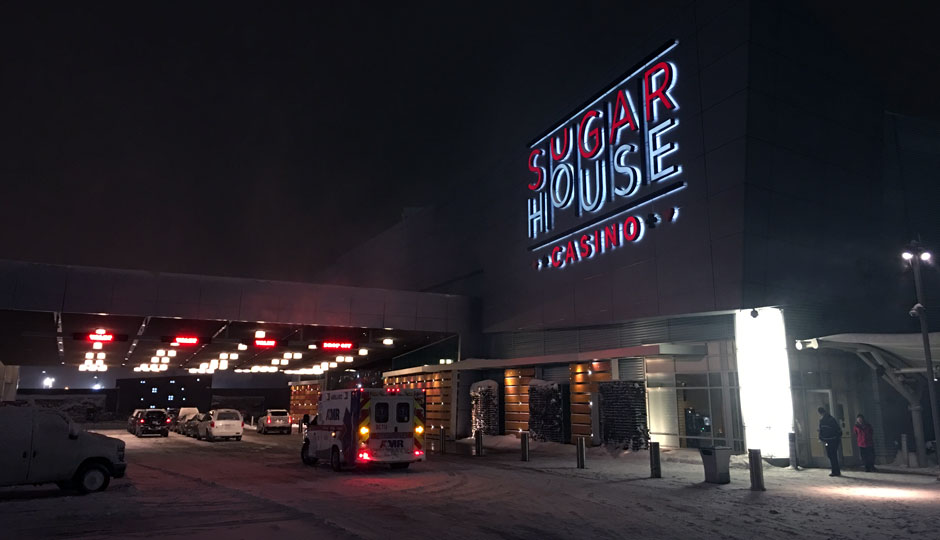SugarHouse Won’t Serve Alcohol 24/7 — and That’s Bad for Pennsylvania’s Budget

SugarHouse, as seen during the snowstorm of January 2016 | Photo: Dan McQuade
When Pennsylvania passed a massive liquor reform bill this spring, politicians and media outlets labeled it as a push for more consumer choices. “This is truly a historic day for Pennsylvania and the most significant step the commonwealth has taken to reform our liquor system in 80 years,” Gov. Tom Wolf said. State Sen. Chuck McIlhinney was similarly enthusiastic: “The reforms included in this bill are measures that consumers have requested for years, and I appreciate the fact that we were able to reach a compromise that responds to the most pressing concerns we hear from community residents.”
But the bill was also, of course, about money. Estimates released at the time Wolf signed the bill said it would generate an additional $150 million for the state — but that total is already $12 million short.
That’s because none of Pennsylvania’s 12 casinos have paid the $1 million fee to acquire a license allowing them to sell beer, liquor, and wine 24 hours a day. “We are not interested in pursuing the additional liquor license at this time,” SugarHouse general manager Wendy Hamilton tells Philadelphia magazine.
Other casinos are apparently thinking the same way. Craig Clark, general manager of the Rivers Casino in Pittsburgh, told the Pittsburgh Tribune-Review that “the cost associated with it doesn’t make mathematical sense.” The $1 annual million fee — which, after five years, drops to $250,000 — for the license is just too high. Casinos don’t think they’ll make back their money. Clark said a figure closer to $250,000 would make sense, and that the Rivers Casino doesn’t really want to sell alcohol 24/7 anyway — but that the current law requires them to stop serving at 1:15 a.m. in order to remove all the alcohol from the casino floor, as required by law.
There are currently no plans to lower the fee. “I’m not aware of any discussion to make changes,” House Republican spokesman Steve Miskin told the Trib.
It’s not clear what’s next. Additional tweaks could be made when the legislature returns to session next week, but for now the state is now $12 million short a year for the next five years.